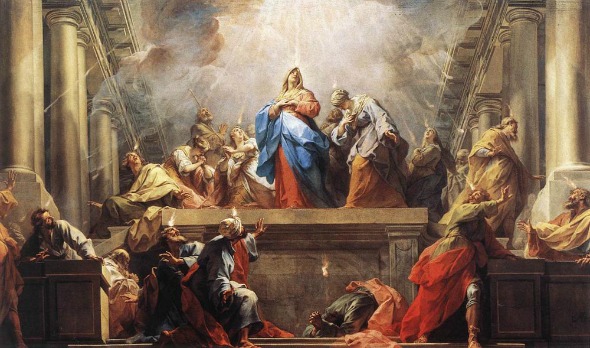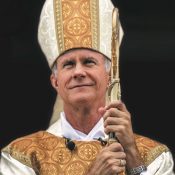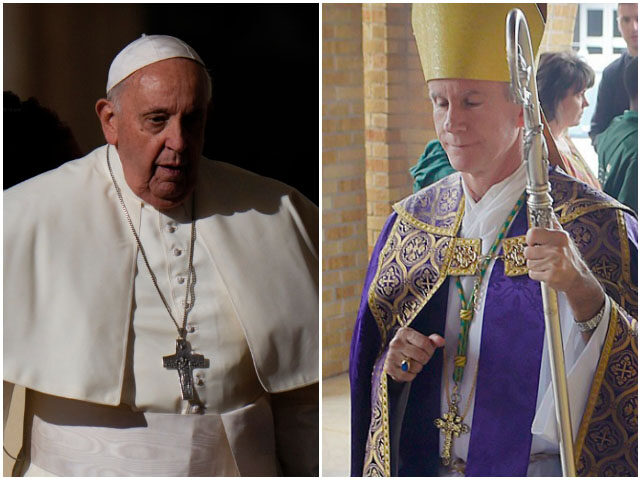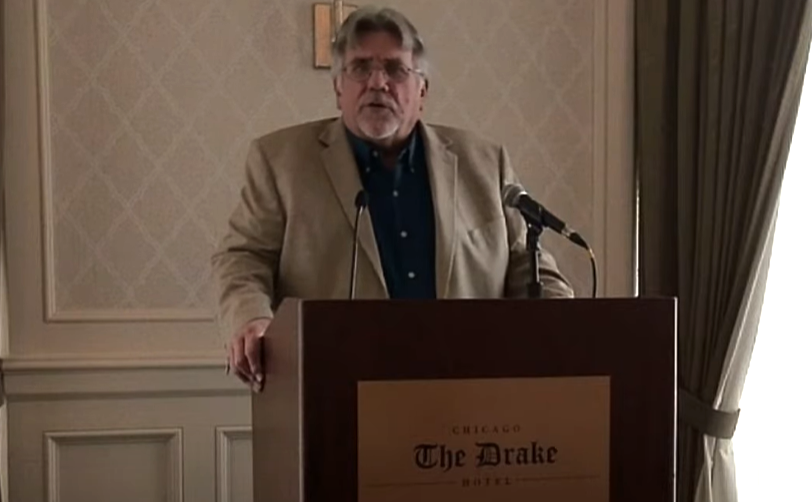Bishop Strickland . . . Jesus Christ Established His Church

Pro-Life Group Lists Every Company That Funds Planned Parenthood, by Steven Ertelt
December 17, 2019
Christians Are Dumping Netflix Over Blasphemous ‘Gay Jesus’ Comedy, by Calvin Freiburger
December 17, 2019
By Most Rev. Joseph Strickland, The Wanderer, December 16, 2019
(Republished with permission of Mr. Joe Matt, The Wanderer)
 In paragraph 48 of the Dogmatic Constitution on the Church, Lumen Gentium (Light of the Nations), we read these words: “The Church, to which we are all called in Christ Jesus, and in which we acquire sanctity through the grace of God, will attain its full perfection only in the glory of heaven, when there will come the time of the restoration of all things. At that time the human race as well as the entire world, which is intimately related to man and attains to its end through him, will be perfectly reestablished in Christ.”
In paragraph 48 of the Dogmatic Constitution on the Church, Lumen Gentium (Light of the Nations), we read these words: “The Church, to which we are all called in Christ Jesus, and in which we acquire sanctity through the grace of God, will attain its full perfection only in the glory of heaven, when there will come the time of the restoration of all things. At that time the human race as well as the entire world, which is intimately related to man and attains to its end through him, will be perfectly reestablished in Christ.”
“Christ, having been lifted up from the earth has drawn all to Himself. Rising from the dead He sent His life-giving Spirit upon His disciples and through Him has established His Body which is the Church as the universal sacrament of salvation. Sitting at the right hand of the Father, He is continually active in the world that He might lead men to the Church and through it join them to Himself and that He might make them partakers of His glorious life by nourishing them with His own Body and Blood.”
“Therefore the promised restoration which we are awaiting has already begun in Christ, is carried forward in the mission of the Holy Spirit and through Him continues in the Church in which we learn the meaning of our terrestrial life through our faith, while we perform with hope in the future the work committed to us in this world by the Father, and thus work out our salvation.”
This understanding of ecclesiology (the theology of the Church) is taught in the New Testament and rooted in the early Church Fathers. To belong to Jesus Christ is to belong to His Church. There is no “church-less” Christianity. Jesus Christ is the Head of His Church. The Church is His Mystical Body. That phrase is placed in theological and historical context in an encyclical letter of Pope Pius XII which bears that name:
“ ‘He (Christ) is the Head of the Body of the Church,’ and the unbroken tradition of the Fathers from the earliest times teaches that the Divine Redeemer and the Society which is His Body form but one mystical person, that is to say, to quote Augustine, the whole Christ. Our Savior Himself in His sacerdotal prayer did not hesitate to liken this union to that wonderful unity by which the Son is in the Father, and the Father in the Son” (n. 67, Mystici Corporis Christi).
Through Baptism, we are incorporated into the Church. To belong to Jesus is to belong to His Church. To suggest otherwise rejects the clear teaching of the New Testament, the apostolic tradition, and the unbroken teaching of the Magisterium. Here is an example of this connection from the Acts of the Apostles. In Saul’s encounter with Jesus on the way to Damascus, we read:
“On his journey, as he was nearing Damascus, a light from the sky suddenly flashed around him. He fell to the ground and heard a voice saying to him, ‘Saul, Saul, why are you persecuting me?’ He said, ‘Who are you, sir?’ The reply came, ‘I am Jesus, whom you are persecuting’” (Acts of the Apostles, 9:3-6).
Saul was a known persecutor of the early Church when he heard Jesus ask that probing question “Why do you persecute me?” As far as we can tell Saul had never met Jesus Christ, at least during our Lord’s “earthly” ministry. Yet, so identified was — and is — Jesus with His Church that He asked this question of Saul. Saul’s experience became the framework for his continuing conversion and apostolic mission.
The Church is not some “thing,” outside of us, which we try to “fix” or have our “issues” with. Upon our Baptism, the Church becomes our home, our mother, the place in which we now live our lives in Christ. The early Church Fathers were of one mind concerning this truth. Here are a few short quotes which are representative of many, many more:
“Let us love the Lord our God; let us love His Church….Let us love Him as our Father and her as our mother” (St. Augustine).
“No one can have God as his Father who does not have the Church as his Mother” (St. Cyprian).
“For where the Church is, there the Spirit of God is also; and where the Spirit of God is, there the Church is, and all grace. And the Spirit is truth” (St. Irenaeus of Lyons).
Even a cursory reading of the early Church Fathers and the sources we have of the teachings of the early Church, reveals the essential connection which the early Church made between Jesus Christ and His Church.
How many Catholic Christians understand the implications of their own Baptism? How many have experienced the grace of identification with the Church as a “mother,” or the interior dimension of living in the Church as a “communion” of persons, flowing from the Communion of the Trinity? In its treatment of the nature of the Church in the Catechism of the Catholic Church (nn. 751-962), this paragraph stands out, citing numerous early Fathers of the Church:
“Christians of the first centuries said, ‘The world was created for the sake of the Church.’ God created the world for the sake of communion with his divine life, a communion brought about by the ‘convocation’ of men in Christ, and this ‘convocation’ is the Church. The Church is the goal of all things, and God permitted such painful upheavals as the angels’ fall and man’s sin only as occasions and means for displaying all the power of his arm and the whole measure of the love he wanted to give the world: Just as God’s will is creation and is called ‘the world,’ so his intention is the salvation of men, and it is called ‘the Church’” (CCC, n. 760).
Is this robust and incarnational experience of the Church confined to “mystics,” the talk of the saints and fathers, or, is it supposed to be the common experience of every Christian? It is supposed to be the common experience of all who bear the name Christian.
In Catholic theology we teach the truth that the early fathers, saints, and councils throughout the ages have affirmed; to belong to Jesus Christ is to belong to His Body, the Church.




